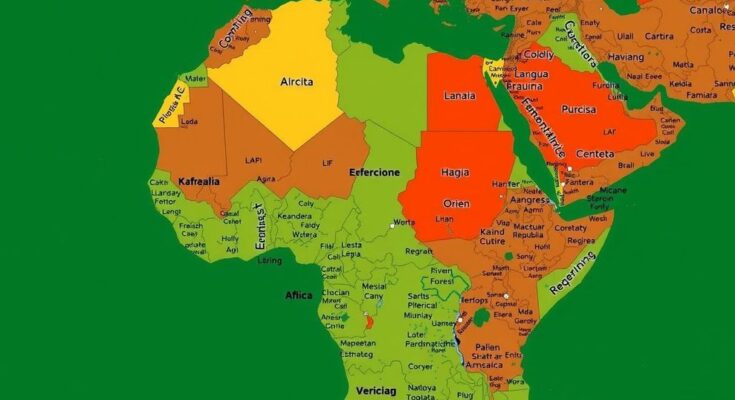The Climate, Peace and Security Fact Sheet for CAR details the intricate relationship between ongoing conflict and climate vulnerabilities. Although security has shown signs of improvement, clashes persist among various factions, influencing migration patterns and humanitarian conditions. The situation remains dire, necessitating urgent international intervention.
The Climate, Peace and Security Fact Sheet for October 2024 provides an analytical overview of the interwoven challenges of climate change and security that the Central African Republic (CAR) faces. CAR is particularly susceptible to climate change due to various socio-ecological vulnerabilities compounded by persistent insecurity. Significant factors contributing to this vulnerability include the lack of effective state authority, poor management of natural resources, and generally low resilience among households and communities. The security landscape has witnessed some improvements in recent years; however, it remains precarious. Clashes between factions of the Coalition of Patriots for Change (CPC), self-defense groups, and bandits versus government forces and allied groups, including mercenaries such as the Wagner Group, continue to be prevalent, especially in rural areas. The changing climate, coupled with the instability in the Sahel and Great Lakes regions, has resulted in transhumant pastoralists migrating into CAR earlier than usual during the transhumance season, which has heightened tensions among local populations. Additionally, the humanitarian implications of the ongoing conflict in Sudan have further strained the situation in CAR, with significant impact felt in the Vakaga and Haute-Kotto prefectures.
The Central African Republic is a landlocked nation that has been significantly affected by prolonged conflict and instability, which has been exacerbated by environmental challenges. The country’s socioecological vulnerabilities, including widespread poverty and inadequate infrastructure, make it particularly sensitive to the adverse effects of climate change. Furthermore, the governance issues, characterized by weak state authority and ineffective resource management, hinder attempts to build resilience against both humanitarian crises and climate change impacts. The ongoing violence and conflicts not only disrupt local livelihoods and economies but also precipitate humanitarian emergencies, particularly as the influx of displaced persons and pastoralists from neighboring regions adds additional strain on already limited resources.
In conclusion, the Central African Republic faces a unique set of challenges that intertwine climate change and security issues. Although some progress has been made in stabilizing the country, the lingering volatility remains a serious concern. Addressing the root causes of vulnerability through improved governance, resource management, and international support is crucial. The fact sheet recommends a series of concerted actions by the international community to ameliorate the situation and support the resilience of affected communities.
Original Source: reliefweb.int




